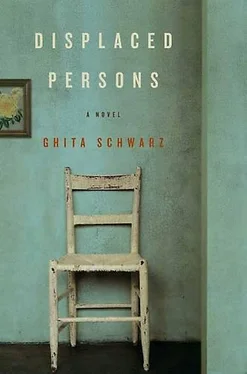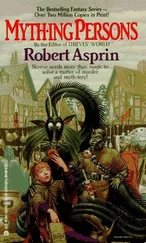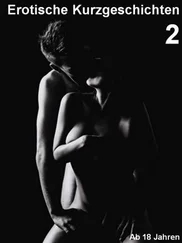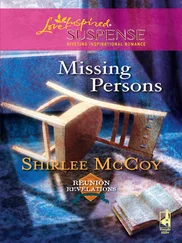The men looked at the captain, silent.
“What this man says is true!” the captain suddenly cried in English. “True!” And he slapped Sheinbaum on the back.
So! said Sheinbaum, passing the letter to Pavel with a slim smile on his face. Let us travel. For, of course, now I am invited, yes?
LYING ABOUT SUCH A thing-but what was a sin now? It had no meaning to Berel anymore. With everyone hugging one another, a few people crying, he wandered back to Dvora, a little piece of cake in his hand. He held it out to her. She looked up at him from her chair and blinked. Immediately he felt his mouth tremble, but he did not want the others to see his face lose its seriousness and shock. He bent down to Dvora’s chair. Face muscles trapped, he felt his words come out half-strangled.
You always wanted a rabbi for a husband, hmm?
Dvora blinked again. Berel lost the battle: an unstoppable laugh began to move up his ribs. He coughed with his neck bent, hoping to make the noise sound like a sneeze.
Sima trotted over with a broad grin. What is funny? Her voice pierced through the angry mutterings of the adults.
Sh! warned Berel. He sucked in his cheeks, pursed his mouth as if to whistle. Nothing is funny. A very serious thing has happened.
But you are laughing!
Sh! He took her upper arm and pressed it, hard. Sima, you must behave.
The three of them huddled, Berel trembling with the last waves of his laughter, crumbs from the cake stuck to his palm, Dvora with her legs crossed, ladylike, calm.
This is what happens, Berel finally whispered. This is what happens when you try to do everything the rabbis say. They have no sense!
He is not like every rabbi, said Dvora. This one is an American, no?
Same books, said Berel. Same rigid ideas. Wanting a piece of paper that is burned into the sky long ago. He is a very pure man! No departures from the Talmud for this one! Young, why should he jeopardize his career with something like this?
So, said Dvora. You showed him better. Congratulations. But she was smiling. On their way to the car Sheinbaum had pulled him aside, demanded he be addressed as Yidl, and asked where in the camp he lived. Berel had told him. Terrible, Sheinbaum had answered. Just terrible. You should have talked to me before. It will be fixed.
Berel looked at his wife. Already, three months in the DP camp, things had changed between them. She had been the master of scheming and lying and stealing in the steppe, the ruler of the family, the protector. Now that they had what to eat and where to sleep, however uncomfortable, he saw frailties in her he had not seen before: how difficult it was for her to learn German, how slow she was to pick up the cloth-cutting skills in her training program, how short of breath she became after an hour of walking. He had felt himself growing taller and plumper even as she remained thin and pale. Now they had a crisis upon them, a small crisis, but a crisis, and he had risen to meet it. She was alive with pride at his trickery, a bit of heat surging into her cheeks.
It is lovely here, Berele.
Sima laughed out loud. I’m going to take more cake!
Take, take, said Berel. But he had stopped laughing. The humidity had broken a bit. Still he felt a sudden fatigue, a desire not to sleep but to lie down and cover his eyes. It was a lovely home, sunny and overflowing with people. But he did not know how Pavel and the others could bear it, the smallness and modesty, the normality of it, the living between two worlds in a house that had been built for families who stayed put.
DELAYED BY HALF A day, the ceremony had been beautiful after all, from Berel Makower’s trembling melodies to the crushed goblet. But Pavel’s rage had worn him out. Kuba had remained poised, even cheerful, smiling and nodding the whole day. Kuba wasn’t too bright, thought Pavel. But what did that matter? Perhaps he was better off, nodding like a beast.
And watching his sister under the chuppah, her face solid and still in front of the man Yidl promised was a rabbi, had made Pavel cry. After all they had gone through, was this what a real life was, still so much struggle and pain?
Fela found him after, silently resting in a soft armchair. She kissed him, then stood again.
Ours will be less complicated, she said, looking at the room filled with guests. We will have it inside Belsen to avoid the paperwork. The British chaplain, or another rabbi, whoever you want. No little orchestra. Just a man’s voice.
He looked at her. So she had given up. He was surprised, but only faintly. He waited for the air to spill out of him, the breeze of his relief cooling his skin, but nothing moved inside him.
She stepped behind his chair. Pavel felt her presence and smell around him as he continued to sit. He watched the soldiers and Rayzele dancing with fever and urgency, and he watched the musicians, legs no longer swollen with recovering hunger, clinking the love songs that once had seemed cheerful. Marek’s lady friend drank and sang with some of the men. The American rabbi was roaming the table for rye bread and cheese, crumbs on his unshadowed chin.
So, muttered Pavel. So, let him eat.
The flutist, hair in her face, was tweetering out a little French ballad.
Pavel’s tongue tasted bitter in his mouth. He rubbed at his wrist. Yes, he thought. Yes, let him eat.
September 1949-February 1950
S OMEONE CALLED OUT FROM a barracks, a woman’s voice, louder and louder. Miloch! Miloch!
Pavel didn’t turn. A woman finding a relative or friend. He was walking quickly to the Joint office, where his and Fela’s visa applications lay in a pile of hundreds. This was the bad luck of the British zone: the refugees in the American zone had been processed much more quickly, helped by the Jewish soldiers. He needed a connection. Simply participating in the council meetings-that was not enough. He needed something more.
Miloch! The woman was upon him, and Pavel saw her face, paler, older, but hers.
Perla, he said. Perla.
There were tears in her eyes, and her cheeks were pink from running after him.
My name is Pavel, said Pavel, trying to order his thoughts, to explain. The name I was born with-I didn’t hear-so long since anyone has called me-I didn’t know anyone from that time, that time when I was-was still-
But he was overcome. Perla’s face, round and dignified, two tears running evenly down her cheeks and neck, her thin, flowered dress-she was an old woman inside a young mother’s body. There was a number on her wrist-so! Surely her baby son had not survived. And her father, an elderly man when Pavel knew him, elderly but wealthy, influential, who had saved Pavel’s life with a bribe, merely because he had known Pavel’s grandfather-
Your father, said Pavel.
No, said Perla. He did not survive. Myself and my sister, only us-and-I am married again.
They arranged to meet as two couples, for a coffee in the main street of the camp. Perla’s new husband was from their province. It happened that Pavel had shared a barracks with him in one of the work camps. Tulek.
They sat outside, in a café modeled on the style they had in Berlin, where the Polish Jews could feel more of the West, sophisticated. Perla had once come from a very high family. In the fall breeze, Fela hugging a dark sweater around her slim shoulders, they found an empty round table. Pavel watched Tulek take in Fela’s figure as she sat down, smoothing her skirt under her thighs. Yes, thought Pavel, I have a beautiful wife.
Miloch, said Perla. The girls who knew him in my town all thought of him as-
No more Miloch! interrupted Fela, only half-joking. Who is Miloch? My husband is Pavel.
Miloch, said Pavel, smiling. The name of a hanged man. I was afraid to use my own name at that time. I was on a list-
Читать дальше











